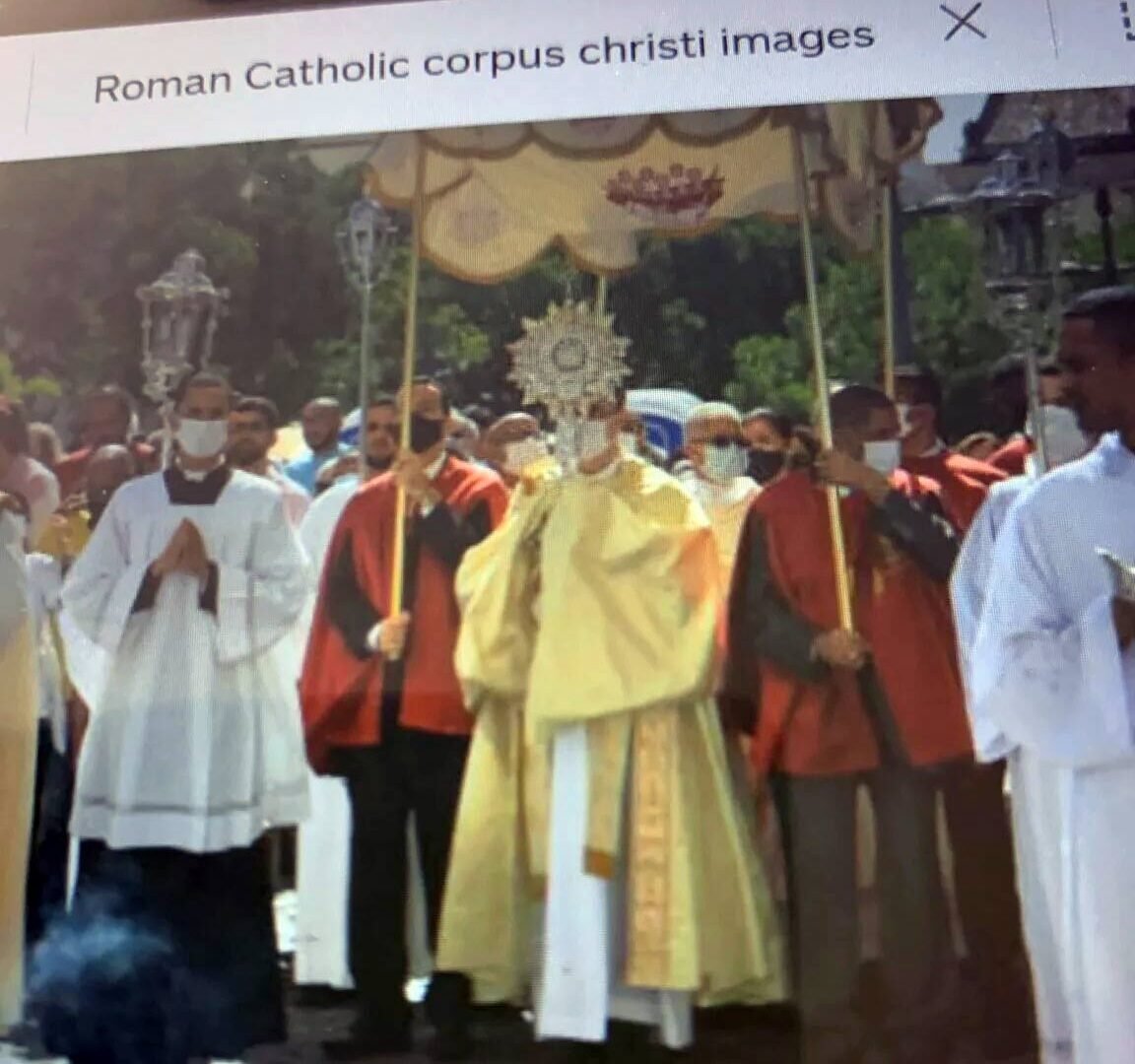Folk traditions

On the eve of the Feast of Corpus Christi, clergy bless Corpus Christi wreaths that are made of flowers.[7] Corpus Christi wreaths and bouquets are often “attached to flags and banners, to houses, and to the arches of green boughs that span the streets.”[7] In Christian homes, these Corpus Christi wreaths are suspended on walls or displayed on doors and in windows.[7] Corpus Christi wreaths are also “put up in gardens, fields, and pastures, with a prayer for protection and blessing upon the growing harvest.”[7]
Throughout Christendom, “the custom developed of carrying the Blessed Sacrament in a splendid procession through the town after the Mass on Corpus Christi Day.”[7] The monstrance which holds the host is surrounded by a Corpus Christi wreath of flowers.[7] During the procession, church bells are rung and “the faithful kneel in front of their homes to adore the Eucharistic Lord.”[7] Along the route in which the procession occurs, Christian homes “are decorated with little birch trees and green boughs”, with candles being lit in the windows.[7] Oftentimes, stops are made at various points called “stations” during the procession and “the Blessed Sacrament is put on an altar table” while a Gospel passage is read and hymns are sung, along with prayer being made.[7]
Austria
Corpus Christi is not only a high festival of the Catholic church year in Austria, but also a public holiday. This is always celebrated on the Thursday after Trinity, which means it can take place between May 21 and June 24.[44]
Brazil and Portugal
Street carpets for the Feast of Corpus Christi (Tapetes de Corpus Christi) are made of different materials such as coffee grounds, flowers, sand, and salt.[45]
Croatia
In Croatian language, there are various names for the Feast:[46] Brašančevo (after hypocorism brašance of the noun brašno, meaning “flour“; dating from 18th century and used in Požega area,[47] Otok, Varoš,[48] Sikirevci[49] and southern Baranja,[50] Luč, as well among Croats of Vojvodina and Herzegovina[51]) with variations (Brošančevo, Brešančevo),[52] Korosante (from Latin Corpo Sancto; used in Dubrovnik area and Pelješac),[53][54] Božji dan (Božji don; literally “Lord’s Day”) and Božji blagdan (lit. “Lord’s/God’s Feast”).[52]
